How to Use AI in Hiring for Modern Recruitment Success
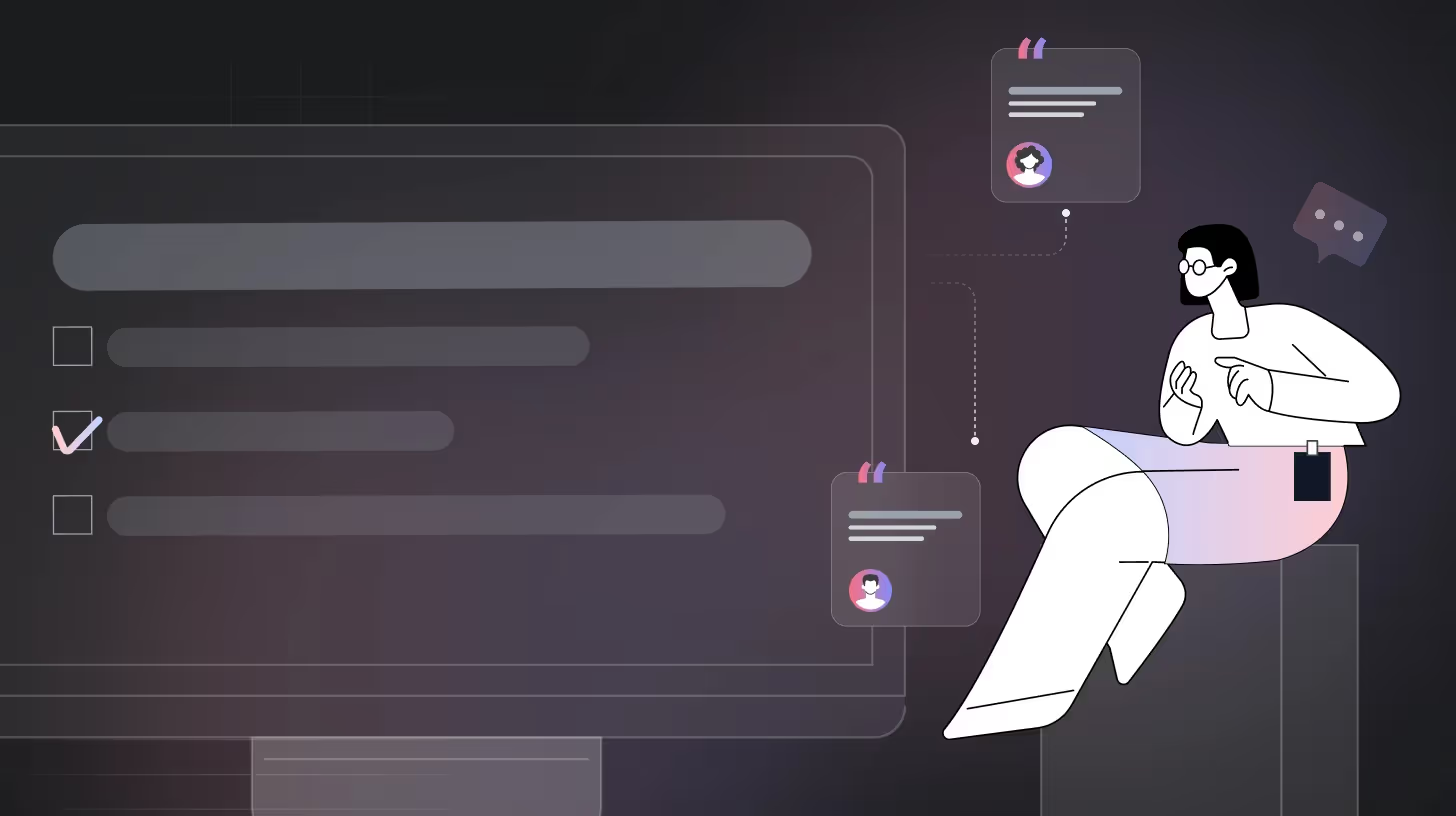
Tired of sifting through 200 resumes to find one decent candidate? You are not alone. Hiring in 2025 is fast-paced, competitive, and often chaotic. That’s why more companies are turning to Artificial Intelligence, which is transforming the recruitment process through personalised candidate experience, efficient hiring, and data-driven decision-making.
A LinkedIn survey found that 67% of hiring managers believe AI helps them save time during the recruitment process.
This guide aims to cut through the noise. We’ll clarify the role of AI in modern recruiting and highlight how it empowers HR and talent acquisition (TA) teams to drive better outcomes across the organisation.
What is AI in hiring?
AI in hiring is also known as AI recruitment or AI talent acquisition. It uses artificial intelligence technologies like machine learning, natural language processing (NLP), and predictive analytics to automate the hiring process. Instead of relying on manual work and human intuition, AI leverages automation by learning, reasoning, and adapting to source, screen, schedule, and interview candidates.
But let’s be clear: AI doesn’t replace human judgment, it sharpens it. By taking over time-consuming administrative work, AI frees HR and TA teams to focus on what they do best: building relationships, assessing cultural fit, and making strategic decisions.
Here’s how AI is commonly used in hiring:
- Resume Screening
- Candidate Matching
- Chatbots & Communication
- Interview Analysis
- Predictive Analytics
- Bias Reduction
Also read: What are AI Interviews? Benefits, Examples, and How to Run One
Case Study: How Unilever Uses AI to Hire Smarter
Unilever, one of the world’s largest consumer goods companies, revamped its graduate hiring process using AI tools like HireVue and Pymetrics. Candidates play neuroscience-based games and record video interviews, which are analysed by AI to assess traits like problem-solving and emotional intelligence.
Results:
- Reduced hiring time from 4 months to 4 weeks
- Saved over £1 million annually
- Increased candidate completion rate to 96%
- Improved diversity among new hires by 16%
This AI-driven process allowed Unilever to screen 250,000 candidates efficiently while enhancing fairness and candidate experience. You can read more here
Benefits of AI in the Hiring Process
Using AI in recruitment comes with several advantages. Let’s explore the key benefits:
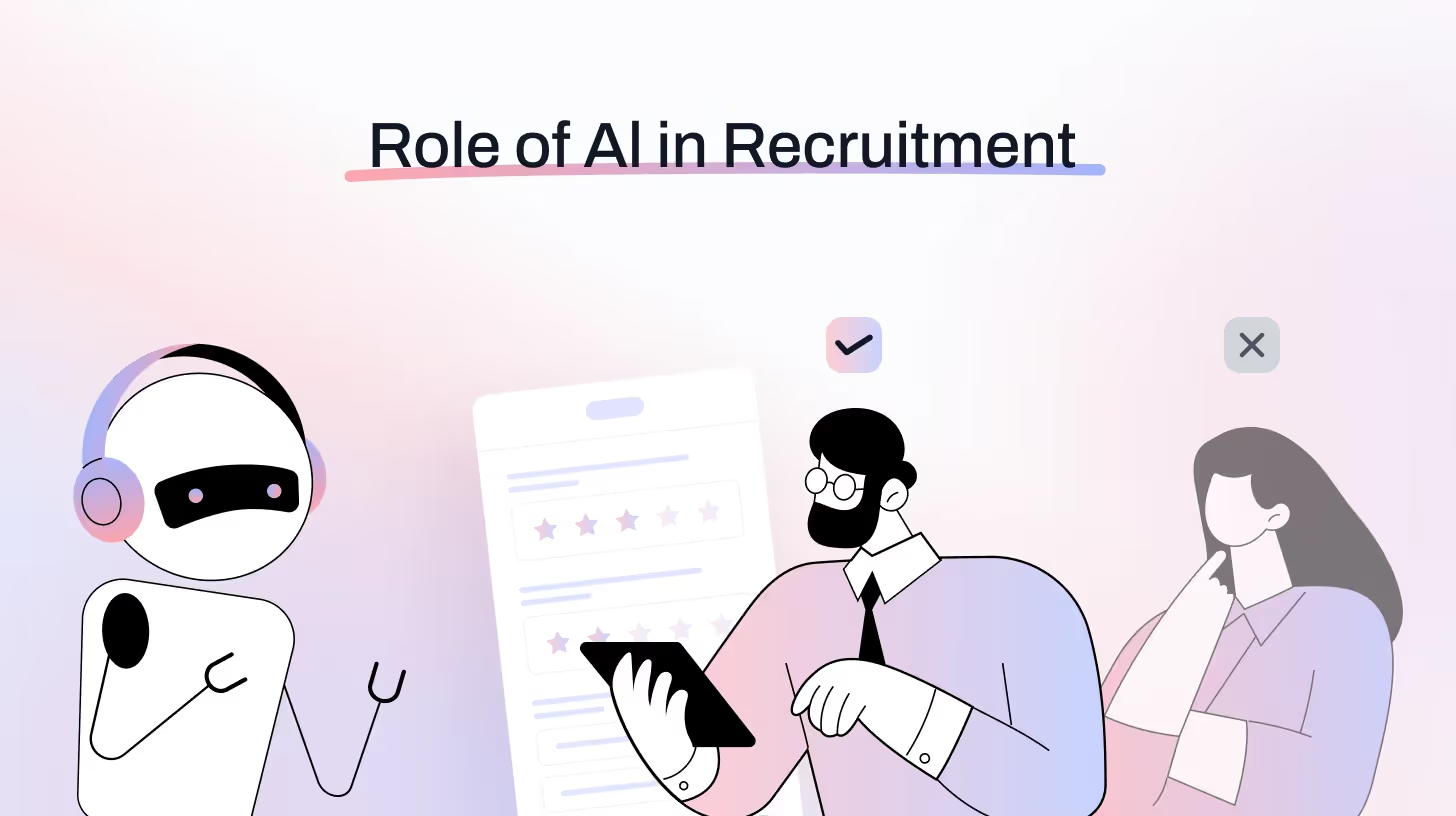
Save time
An average hire requires a recruiter to spend 23 hours screening candidates and shortlisting them. AI helps automate these human-centric tasks by instantly shortlisting thousands of candidates and scheduling interviews. For example, Hilton uses AI chatbots to improve candidate engagement and cut hiring time by 90%, enhancing the overall recruitment experience.
Reduced workload
AI handles all the repetitive tasks, such as resume parsing, email responses, and candidate tracking, minimizing human errors and reducing manual effort for hiring teams.
Smarter candidate matching
AI analyzes job descriptions and the history of potential candidates to find the best fit for the job. You can also use AI to screen for keywords that can help you reach the right audience at the right time. For example, LinkedIn Talent Solutions uses AI to suggest top candidates based on skill match and career trajectory.
Reduce bias in the hiring process
AI can help minimize unconscious human bias by focusing on data-driven indicators, like skills and performance potential, instead of personal identifiers.
Improve candidate experience
AI chatbots and automated communication keep candidates informed and engaged, enhancing the overall recruitment process. For example, L’Oréal’s AI assistant “Mya” boosts candidate engagement by handling over 1M interactions a year.
Optimized talent acquisition
AI-driven insights help companies build stronger, more diverse talent pipelines, forecast future hiring needs, and make data-backed hiring decisions at scale.
Recommended read: Designing Candidate Experience Surveys That Work
How Companies are Incorporating AI In Recruiting
Companies are integrating AI across the recruitment funnel from sourcing to onboarding to improve speed, accuracy, and candidate experience. Here's how they’re doing it:
AI-Powered Resume Screening
AI tools reduce hours of manual work by screening the best candidate based on the job description and their qualifications. For example, IBM uses AI to reduce resume screening time by 75%.
Job Ad Optimization
AI analyzes the language of the job ads and suggests better phrasing, inclusive language, and optimal job titles to attract the right talent. The result? Better visibility, more diverse applicants, and higher conversion rates.
AI Screening Interviews
Instead of having humans spend hundreds of hours on initial screening interviews,
use AI to do the heavy lifting. It interviews candidates at scale and allows applicants to ask their initial questions as well.
AI Chatbots for Candidate Engagement
AI chatbots interact with candidates in real time, answering questions, sharing job details, and scheduling interviews, enhancing candidate experience while reducing recruiter workload.
Predictive Analytics for Better Hiring Decisions
AI models analyze hiring data to forecast candidate success, attrition risk, and long-term fit, helping recruiters make smarter decisions. For example, Amazon uses internal predictive tools to identify high-performing hires.
Sourcing Passive Talent
AI can scan online profiles, portfolios, and activity across platforms like LinkedIn or GitHub to identify passive candidates who match open roles even if they haven’t applied.
Recommended read: How to Give an Interview Using AI (Step-by-Step Guide for Job Seekers)
How is the AI in the Recruitment Process Changing Hiring
AI is reshaping the way companies attract, evaluate, and hire talent. What used to take days and weeks is done in minutes.
From reactive to proactive hiring: AI tools source passive candidates and forecast hiring needs before roles even open.
From gut feeling to data-driven decisions: Predictive analytics helps recruiters select candidates based on success indicators, not assumptions.
From slow and manual to fast and automated: Resume screening, interview scheduling, and candidate scoring happen in minutes.
7 Stages of Hiring Where AI Makes a Real Impact
Recommended Read: How to Run an Employee Onboarding Survey and Get Meaningful Insights
How to Leverage Gen AI in Recruitment
Here’s how you can start using Generative AI (Gen AI)effectively in your hiring process:
Automate Candidate Communication
Gen AI can draft personalized outreach messages, follow-up emails, and interview reminders, keeping candidates engaged and informed at every step.
Create AI-Powered Interview Questions
Tools like TheySaid can help you generate relevant, role-specific interview questions that evaluate both technical skills and culture fit.
Summarize Candidate Profiles
Quickly turn resumes and application data into easy-to-read summaries, so hiring managers can make faster, more informed decisions.
Analyze Interview Responses at Scale
Use Gen AI to transcribe and analyze video or written interviews, identifying key themes, soft skills, and red flags across multiple candidates.
Generate Post-Interview Notes & Feedback
Save time by letting Gen AI draft structured feedback or thank-you emails based on your notes or recorded responses.
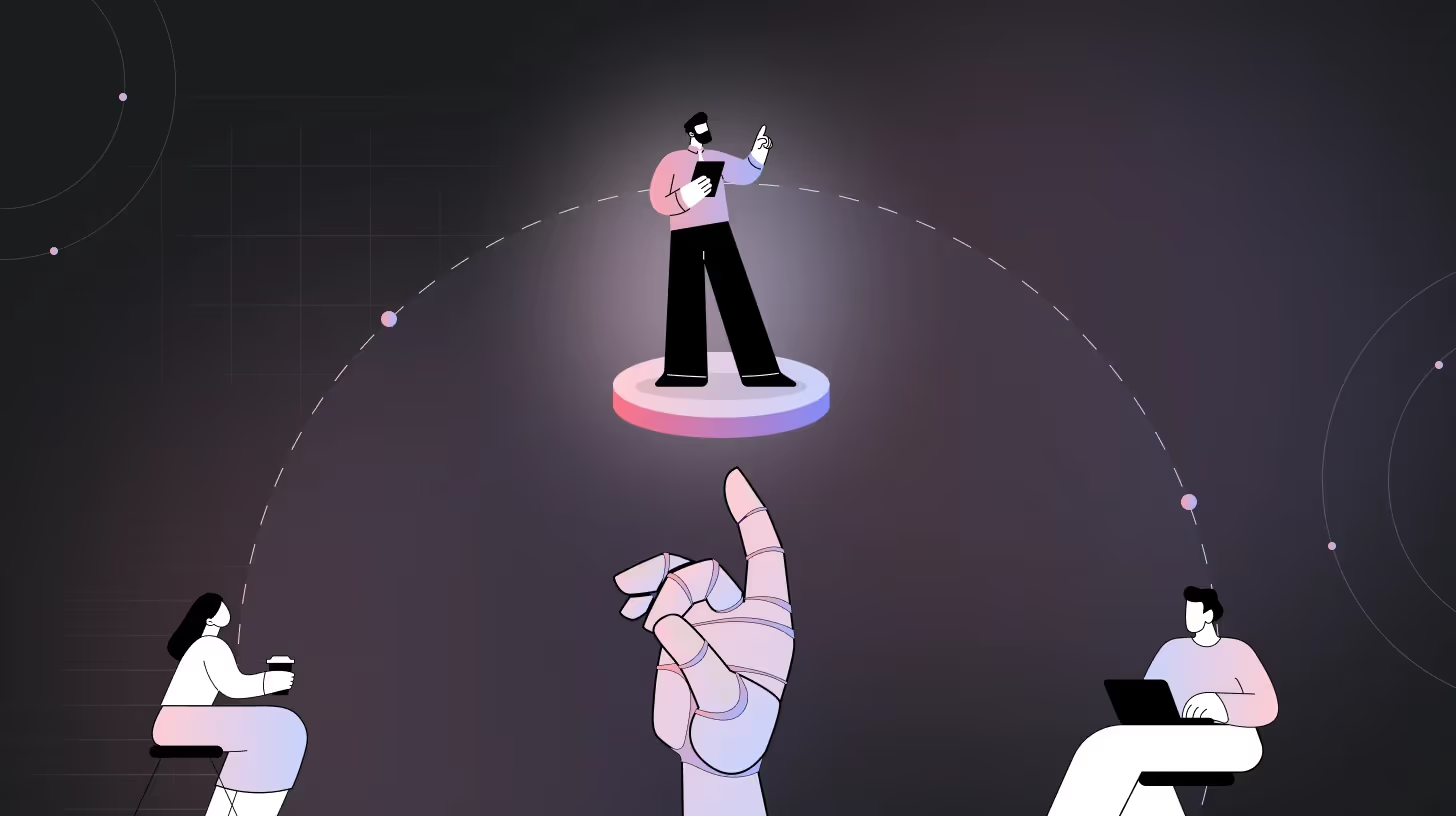
How Can AI Support Diversity, Equity & Inclusion Initiatives?
AI can help make hiring fairer if you use it with care. Here's how:
Anonymized Resume Screening
AI can hide names, photos, school names, and other identifiers during the first screening to reduce unconscious bias.
Inclusive Job Descriptions
Natural Language Processing (NLP) tools analyze and rewrite job ads to be more gender-neutral and inclusive, avoiding words that may deter certain groups.
Wider Talent Pool Sourcing
AI scans broader platforms, including diverse talent networks and non-traditional profiles, bringing in candidates often missed in manual searches.
Standardized Evaluations
AI helps remove subjectivity by using consistent criteria to assess candidates, ensuring fairness in shortlisting and interviews.
Real-Time DEI Analytics
AI dashboards highlight where diverse candidates drop off in the funnel, helping recruiters take immediate corrective actions.
Challenges and Ethical Concerns of AI in Hiring
AI in recruitment brings speed and scale, but it’s not without risks. When misused or unmonitored, AI can reinforce the biases it aims to solve.
Common Concerns:
Algorithmic Bias: AI can unintentionally favor or exclude certain groups if trained on biased data.
Lack of Transparency: Many AI tools operate as black boxes, making it hard to explain decisions.
Over-Automation: Relying too heavily on AI may make the process feel cold or impersonal.
Legal Risks: Improper AI use may violate data privacy laws or anti-discrimination regulations (e.g., EEOC, GDPR).
How to Integrate AI Hiring Tools into Your Recruitment Process
Successfully adopting AI in hiring requires more than just plugging in a tool; it takes a strategic, thoughtful approach. Follow these best practices to ensure smooth integration and real impact:
Define Clear Objectives: Pinpoint the specific hiring challenges you want AI to solve, whether it’s faster sourcing, smarter screening, or improving candidate engagement.
Select the Right Tools: Choose AI solutions that seamlessly integrate with your existing HR tech stack and are tailored to your company’s hiring goals.
Balance Automation with Human Oversight: Let AI handle repetitive tasks, but keep recruiters involved to maintain a personalized, human-centered experience.
Prioritize Ethical Use & Bias Monitoring: Review AI-driven decisions regularly to identify and correct any bias. Transparency and fairness should be built into every step.
Equip Your Team with Training: Ensure your HR and TA teams understand how to use the tools, interpret AI-generated insights, and apply them effectively.
Track Results and Continuously Improve: Measure the impact of AI on key hiring metrics like time-to-fill and quality-of-hire, and refine your processes as needed.
Recommended read: Top 9 AI Interview Tools for Modern Recruitment
Make Better Hiring Decisions with TheySaid
Don’t get left behind in the talent race. AI is reshaping recruitment, and TheySaid puts that power in your hands. Save time, reduce bias, and create unforgettable candidate experiences with AI surveys and interviews built for today’s fast-paced hiring.
Why Use TheySaid for AI Hiring?
- Auto-generate unbiased interview & survey questions
- Instantly analyze candidate responses with AI
- Reduce bias with anonymized screening
- Engage candidates via smart chatbots
- Plug into your existing hiring tools
Ready to hire better, faster, and fairer? Sign up for TheySaid today.





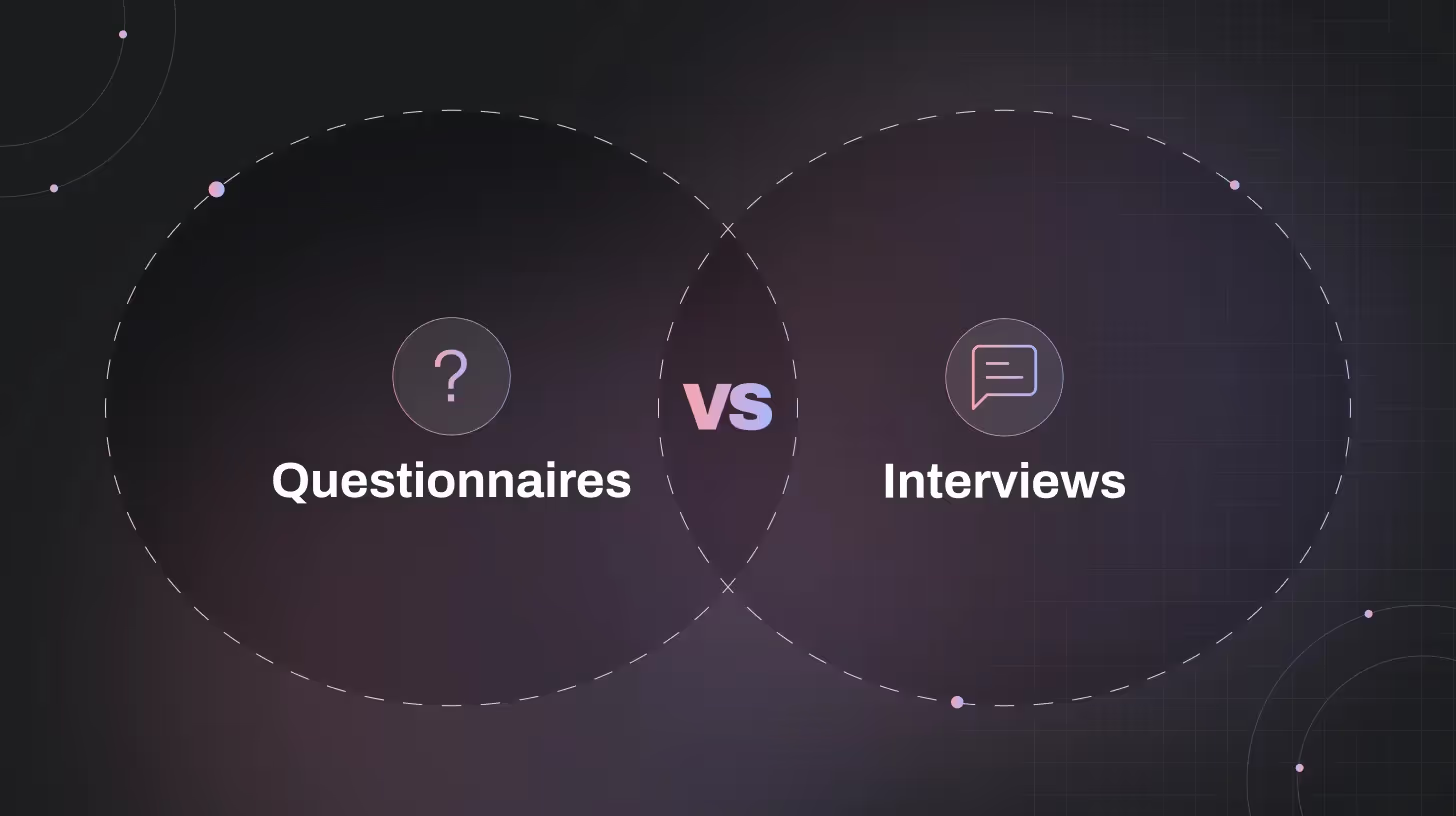
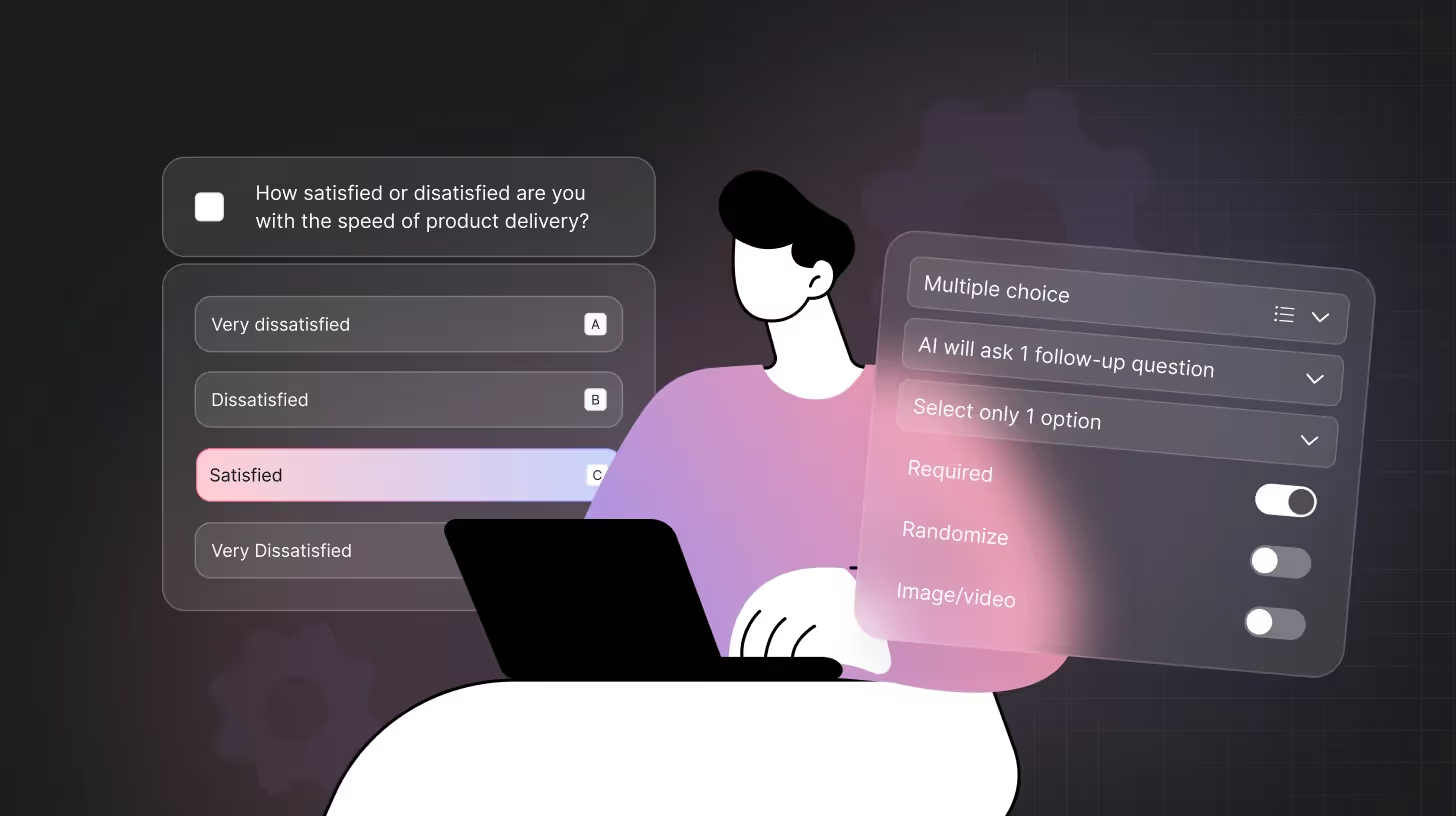
.avif)







.svg)